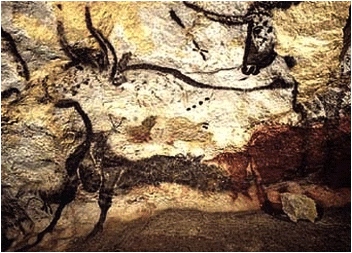 |
 |
Life at the Edge: Extreme EvolutionJanTerm 2017 George
M. Diggs, Jr. |
 |
 |
 |
 |
Life at the Edge: Extreme EvolutionJanTerm 2017 George
M. Diggs, Jr. |
 |
 |
To Contact Dr. Diggs:
Austin College Phone: (903) 813-2246
Office: IDEA Center 261
Mailing Address: Department of Biology, Austin College, Sherman,
TX 75090
AC Suite 61564
e-mail: gdiggs@austincollege.edu
Home page: http://artemis.austincollege.edu/acad/bio/gdiggs/diggs.html
Office Hours: offic hours during JanTerm are by appointment.
Life at the Edge: Extreme Evolution — Class Information— JanTerm 2017
____________________________________________________________________________________________________
Class Meetings: Lecture/Discussion typically 10:00-12:00 a.m. M-F; Laboratories 1:30 pm to about 4 pm—as listed on the class schedule.
Text: There is no specific textbook but a broad assortment of readings will be provided digitally; the readings are essential.
Course Homepage: http://artemis.austincollege.edu/acad/bio/gdiggs/janterm2017/janterm2017.html
Course Content: An introduction to the concept of evolution and how it applies to organisms in extreme environments.
Course Goals and Expected Student Outcomes: The goals of the course are: 1) for students to gain an understanding of the concept of evolution and how it applies to organisms in extreme environments; 2) for students to be able to effectively communicate in writing and orally about these ideas; and 3) to provide students with experiential learning opportunities in the labs. Expected student outcomes include reaching an appropriate level of knowledge about evolution in extreme environments, developing expertise in researching and writing about the field, and being able to present an articulate and easily understood oral presentation of their research findings.
Exams and Quizzes: There are two exams —Wed. 11 January and Tues. 24 January. There will also be periodic quizzes or assignments – grades on each of these will be referred to as a “quiz grade.”
Grades: The course is S/D/U only. In order to pass the course with an S, you must make 65% or better on each of the two exams during the term, an S on the research paper, and the oral presentation, and S on all but one of any “quizzes.” In addition, you must miss no more than three “sessions” (often there are two sessions a day—morning and afternoon) (or have worked out a satisfactory plan with me in the event of serious illness or emergency). If any one of these requirements is not satisfied, but the others are, you will earn a D. If more than one is not satisfied, you will receive a U.
Class Attendance & Rules: JanTerm has a very tight schedule, and absences from lecture or laboratory sessions are not appropriate outside of extreme circumstances. If you have to miss class or lab for some emergency, an extra assignment will be provided for you. If you miss more than three sessions (typically a total of one and a half days), we will meet to discuss the possibility of you dropping or being dropped from the course. Attendance is also required during the student presentations. Electronic devices, especially cell phones, are not to be used in class unless you have discussed your needs with me in advance. Repeated use of a cell phone may result in a grade of U.
Readings: Readings are listed on the course schedule. Reading assignments are available on-line at the class homepage (the schedule link) or on Moodle. You may be given additional reading assignments in class.
Research Paper and Real Food Dinner Write-up: Real Food Dinner write-up due Tuesday, 17 January (10 am); research paper due Thur. 19 January (10 am); late papers will be lowered 10 points per day. Please see appropriate web page for details on the assignment.
Academic Integrity: No student may unfairly advance his or her academic
performance or impede the performance of other students. Any
activity that unfairly gives an advantage to a student or group
of students is a violation of academic ethics and will be
punished to the fullest extent of College policy. Examples of violations include: using unauthorized notes on an exam; obtaining help from another student during an exam; failure to give credit to a colleague who assisted with a project; or failure to give credit to an author whose work is cited. This list is not exhaustive. Each item that you submit for a grade in this course must include
the following statement along with your signature:
This work was prepared in accordance with the Austin College
academic integrity
policy. _____________Signature_____________ (Name typed or
printed)
Students with Disabilities: Austin College seeks to provide reasonable accommodations for all individuals with disabilities and complies with all federal, state, and local laws, regulations, and guidelines. It is the responsibility of the student to register with and provide verification of academic accommodation needs to the Director of the Academic Skills Center (Laura Marquez, Wright Campus Center, Room 211)) as soon as possible. The student also must contact the faculty member in a timely manner to arrange for reasonable academic accommodations. For further information call (903-813-2454) or visit the Academic Skills Center. College policy prohibits instructors from accomodating learning disabilities without first having received the proper written instructions from the Director of the Academic Skills Center.
For further information about this course, please
contact:
| Dr. George Diggs, Professor Department of Biology Austin College 900 N. Grand Ave. Sherman, TX 75090 903-813-2246 Fax: 903-813-3199 gdiggs@austincollege.edu |
 |
All text and images on this page copyright 2017, George M. Diggs, Jr.